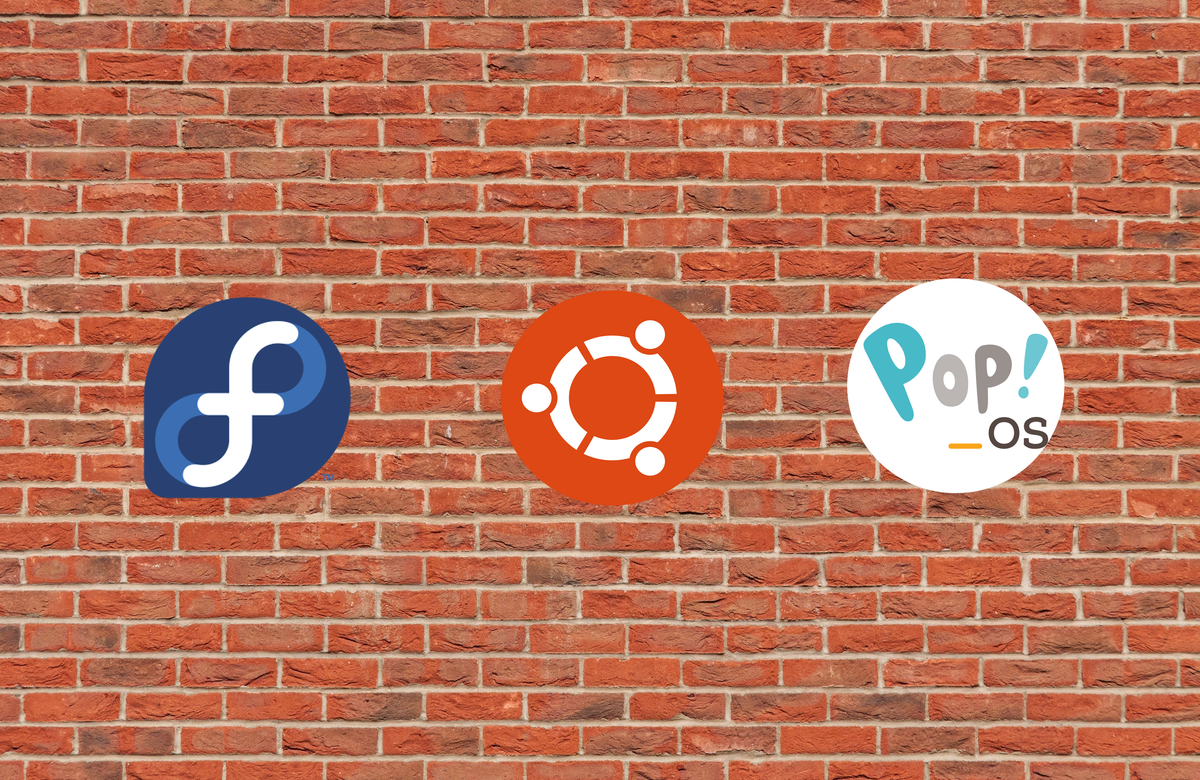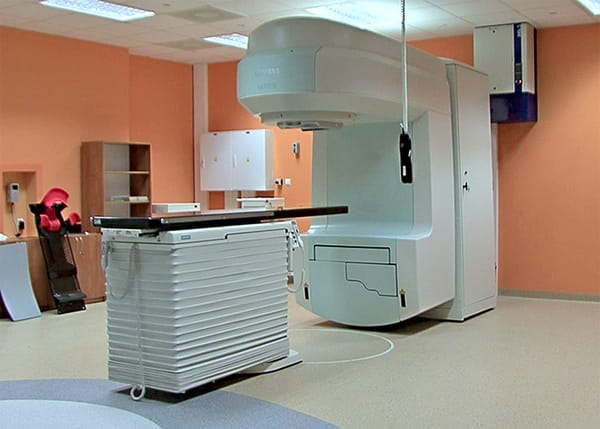Pop!_OS, Ubuntu, and Fedora: A Comprehensive Comparison

Linux offers a plethora of distributions, each catering to different user needs. Among the many, Pop!_OS, Ubuntu, and Fedora stand out as user-friendly, stable, and feature-rich distributions. I've used all of these distributions for a over a year each. Let's delve into a detailed comparison of these three to help you decide which suits your requirements best.
Overview
1. Pop!_OS
- Developed by System76, a company known for its Linux-based hardware.
- Built on top of Ubuntu, enhancing it with additional features and optimizations.
- Focused on simplicity, productivity, and gaming, especially for developers and creators.
- Uses the GNOME desktop environment with its own set of customizations. They are also developing their very own desktop environment - Cosmic.
2. Ubuntu
- One of the most popular Linux distributions, backed by Canonical.
- Known for its user-friendliness, large community, and vast software repository.
- Offers several flavors, including Ubuntu Desktop (with GNOME), Kubuntu (KDE), Xubuntu (Xfce), etc.
- Regular release cycle and Long Term Support (LTS) versions.
3. Fedora
- Sponsored by Red Hat and known for its innovation and bleeding-edge features.
- Embraces newer technologies, making it an excellent choice for developers and tech enthusiasts.
- Follows a more rapid release cycle, providing frequent updates.
- Uses GNOME as the default desktop environment, providing a pure GNOME experience.
Comparison criteria
1. Usability
- Pop!_OS and Ubuntu are more user-friendly out-of-the-box, with intuitive interfaces.
- Fedora, while user-friendly, might require additional configurations for certain functionalities. Namely drivers and desktop environment customization.
2. Performance
- All three distributions offer excellent performance, but Fedora's focus on cutting-edge technologies (such as the most recent kernel versions) might lead to occasional instability.
3. Package Management
- Ubuntu and Pop!_OS use Debian's APT (Advanced Package Tool) for package management, providing a vast repository of software.
- Fedora uses RPM (Red Hat Package Manager), offering DNF (Dandified Yum) as its package manager.
- Both are unique in their own ways and are roughly equal.
4. Community Support
- Ubuntu has a massive and active community, providing extensive documentation and support forums.
- Pop!_OS benefits from Ubuntu's community support but has its own forums and resources.
- Fedora also has a supportive community, especially for developers and enthusiasts. Many Red Hat Linux troubleshooting steps also apply to Fedora as well.
5. Target User Base
- Pop!_OS targets developers, gamers, and content creators with its focus on productivity and performance.
- Ubuntu appeals to a broad audience, including beginners, professionals, and developers.
- Fedora caters to tech enthusiasts, developers, and those wanting bleeding-edge technologies. Coincidentally, Linus Torvalds, the father of the Linux kernel, uses Fedora on his workstation.
Ease of use
Debian-Based Troubleshooting Advantage
One significant advantage of Debian-based distributions like Ubuntu and Pop!_OS is their extensive troubleshooting resources available online. Due to their widespread popularity and longevity in the Linux ecosystem, users often find a wealth of community-contributed solutions, forums, and documentation for various issues they might encounter.
- Vast Community Support: Ubuntu's large user base results in an abundance of troubleshooting guides, forums, and video tutorials, aiding users in resolving common and complex problems.
- Stable and Refined Interfaces: Ubuntu and Pop!_OS, being Debian derivatives, prioritize user-friendliness in their interfaces, making them relatively easier for newcomers to adapt to Linux.
RPM-Based Distribution Support
On the other hand, RPM-based distributions like Fedora, while user-friendly, might have fewer troubleshooting resources due to a slightly smaller user base. However, Fedora's community is dedicated to offering assistance and solutions, especially for its target audience—developers and tech enthusiasts.
- Specific Target Audience: Fedora's user base primarily consists of individuals seeking bleeding-edge technologies and innovations, fostering a community that's adept at resolving issues related to these newer features.
Divergence in Solutions
It's important to note that while Debian-based distributions might have a more extensive set of troubleshooting steps available due to their broader user base and longer existence, RPM-based distributions like Fedora provide focused and specialized solutions for their specific audience.
Ultimately, choosing between these distributions regarding ease of use often involves weighing the breadth versus depth of available troubleshooting resources, aligning with your comfort level and specific requirements.
Gaming Support and Driver Management
Pop!_OS: Out-of the box gaming
Pop!_OS, designed with a focus on gaming and performance, offers robust support for gaming out of the box.
- NVIDIA Integration: One standout feature is its seamless integration of NVIDIA drivers, providing an enhanced gaming experience on systems equipped with NVIDIA GPUs. System76, the creator of Pop!_OS, optimizes the distribution to maximize compatibility and performance with NVIDIA hardware.
- Game Mode and Performance Tweaks: Pop!_OS features a dedicated Game Mode that allows users to optimize system resources for gaming, reducing background tasks and improving performance during gameplay.
Ubuntu: Growing Gaming Support
Ubuntu, being one of the most widely used Linux distributions, has seen a significant rise in gaming support over the years.
- Driver Availability: Ubuntu offers a straightforward method for installing proprietary graphics drivers, including those from NVIDIA, through its Software & Updates tool. While it might not have the same level of integration as Pop!_OS, it provides reliable driver support for gaming.
- Steam and Snap Integration: Ubuntu integrates well with gaming platforms like Steam and supports Snap packages, making it easier to install and manage various gaming applications.
Fedora: Focus on Open Source Drivers
Fedora, known for its focus on open-source software, provides good support for gaming but takes a different approach to drivers.
- Open Source GPU Drivers: Fedora emphasizes open-source GPU drivers by default, which might not offer the same performance as proprietary drivers, particularly for gaming on NVIDIA hardware.
- Additional Repository for Proprietary Drivers: While Fedora prioritizes open-source drivers, users can access additional repositories to install proprietary drivers, including NVIDIA drivers, for an improved gaming experience.
Summary
- Pop!_OS: Offers seamless integration and optimization for NVIDIA drivers, ideal for gaming on NVIDIA GPUs.
- Ubuntu: Provides reliable driver management tools and growing support for gaming applications.
- Fedora: Emphasizes open-source drivers but allows users to access additional repositories for proprietary drivers, accommodating a balance between open-source ideals and gaming performance.
Maintenance and User Involvement
Pop!_OS: Minimal User Intervention
Pop!_OS aims to reduce user intervention and maintenance by providing a streamlined experience.
- Automated Updates: System76 focuses on automated updates to keep the system secure and up-to-date without requiring constant user intervention.
- Stable Releases: While it emphasizes cutting-edge features, Pop!_OS ensures stability in its releases, minimizing the need for frequent troubleshooting or system tweaks.
Ubuntu: User-Friendly Maintenance
Ubuntu's user-friendly approach extends to its maintenance, aiming to minimize manual intervention.
- Software Center and Update Manager: Ubuntu's Software Center simplifies software installation, and its Update Manager automates system updates, making maintenance more straightforward.
- Long Term Support (LTS) Versions: LTS versions offer longer support windows, reducing the frequency of major system upgrades and ensuring a stable environment for users.
Fedora: Balance Between Innovation and Involvement
Fedora, while innovative, may require slightly more user involvement due to its cutting-edge nature.
- Frequent Updates: Fedora's rapid release cycle brings new features promptly, but this can result in more frequent updates and occasional system configurations or tweaks.
- Community and Documentation: Fedora's community and documentation are robust, aiding users in addressing issues that may arise from its more progressive updates.
User Involvement Summary
- Pop!_OS: Emphasizes automated updates and stability, reducing the need for frequent user intervention.
- Ubuntu: Offers user-friendly tools for maintenance while LTS versions minimize major changes, providing a more stable environment.
- Fedora: Demands slightly more user involvement due to its rapid update cycle but provides strong community support and documentation.
When considering maintenance, users may prefer Pop!_OS for its hands-off approach, Ubuntu for its user-friendly tools, or Fedora for its balance between innovation and user involvement.
The negatives
Pop!_OS
- Limited Software Center: Pop!_OS's software center might feel limited compared to other distributions like Ubuntu, offering a narrower selection of applications. I also found it quite buggy, often crashing after a search.
- Focused on GNOME: While GNOME is well-liked by many, some users might prefer other desktop environments, and Pop!_OS's emphasis on GNOME might not cater to their preferences.
- Uncretain future: While it currently does use GNOME, System76 developers are working on their own Rust-based desktop environment, which takes up much of the development time and ultimately has a yet uncertain future.
Ubuntu
- Snap Controversy: Ubuntu's inclusion of Snap packages by default has sparked debates within the Linux community due to concerns over proprietary software and system resource usage. Usage instances
aptmay instead install a snap instead (such as Firefox), which does not bend well with users that want complete control of their system. - Unity to GNOME Transition: The transition from Unity to GNOME desktop environment in recent versions might create some discontinuity for users accustomed to Unity's interface.
Fedora
- Aggressive Release Cycle: Fedora's rapid update schedule might cause occasional instability or compatibility issues, especially for users seeking a more stable environment.
- Open Source Emphasis: While a positive for many, Fedora's emphasis on open-source drivers may lead to suboptimal performance on certain hardware configurations using proprietary drivers. For example, users must manually enable proprietary NVIDIA drivers via RPMFusion, and these changes can break after any major update.
Conclusion
Plus what I personally use
From my perspective, choosing among Pop!_OS, Ubuntu, and Fedora hinges on distinct priorities and user preferences. Here's a breakdown:
- Pop!_OS: Ideal for users craving a seamless, optimized experience, especially gamers and developers reliant on NVIDIA GPUs. However, its limited software center and GNOME-centric approach might not suit everyone's taste.
- Ubuntu: With its extensive support, user-friendly interface, and growing gaming compatibility, Ubuntu stands as a versatile choice. Yet, controversies surrounding Snap packages and the shift from Unity to GNOME might deter some users.
- Fedora: Appeals to enthusiasts seeking bleeding-edge technologies and open-source emphasis. Its rapid release cycle, though stimulating, may lead to occasional instability, and the prioritization of open-source drivers might not cater to everyone's hardware needs.
Each distribution has its strengths and weaknesses, making the decision a matter of aligning individual priorities. Pop!_OS excels in out-of-the-box NVIDIA integration, Ubuntu offers broad usability with some controversies, and Fedora targets enthusiasts with its rapid innovations and open-source commitment. Consideration of these aspects will aid in selecting the right distribution tailored to specific preferences and use cases.
What do I personally use?
From my standpoint, I have found Fedora to be my go-to choice for several reasons. I prefer its vanilla GNOME experience, albeit I still modified it quite a bit. Pop_OS!'s customizations only got in the way for me. Additionally, since I play games quite a bit, Fedora's more recent NVIDIA drivers (although sometimes chaotic) cater to my need for the latest features and optimizations for my hardware.
Moreover, the absence of Snap packages in Fedora resonates with my preference for Flatpaks. These factors collectively make Fedora my preferred daily driver for its commitment to delivering bleeding-edge technologies while maintaining a snapless ecosystem.
However, I must admit that for work, I prefer Ubuntu for its stability. Breakages in Fedora do happen on my desktop (less so on my AMD-powered laptop). I just can't have an update break my system. My desktop and personal laptop uses Fedora, while my work laptop uses Ubuntu with the same GNOME customizations as in Fedora.







